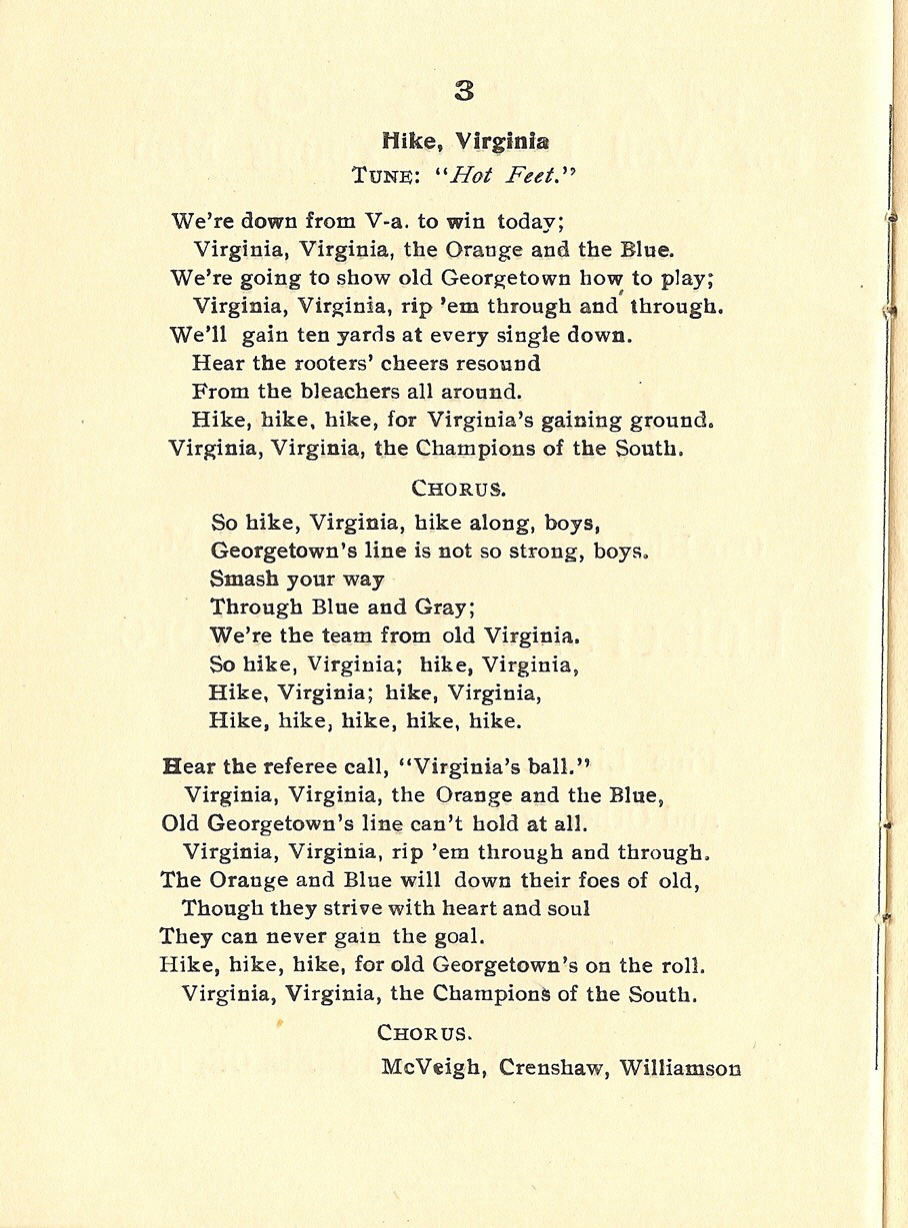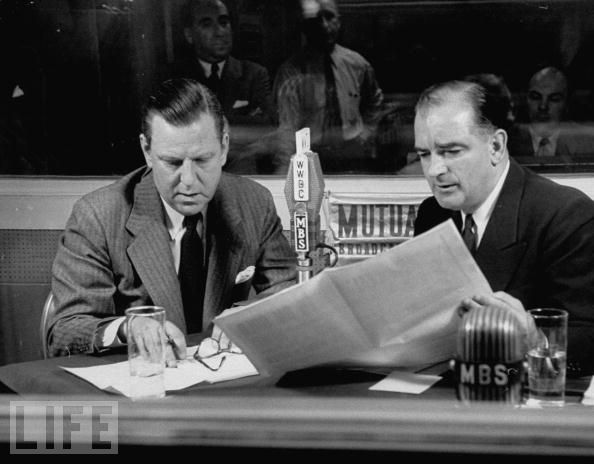I’ve written before about University of Virginia student songs, including (infamously) “From Rugby Road to Vinegar Hill” (once or twice) and “Glory to Virginia,” the student song often performed with “Rugby Road.” As I noted in the latter case, many of these student songs follow the traditional pattern of oral transmission of ballads and other songs, in which old melodies gain new lyrics and vice versa.
This morning I found another example, in a most unlikely place. I’m working through a project to rip all the vinyl in my possession, which includes records that I’ve bought on purpose and that have been lent or outright given to me by friends and family members. One was an awful “Sing Along with Mitch” record. I rip the things so I can share them back to the donors if requested, and in the odd case I find some tracks that are meaningful or really good. In this case, it was a medley on the B side of “A Bicycle Built for Two” and “Put on Your Old Grey Bonnet.” And the latter song is the melody of “Fill Up Your Old Silver Goblet,” which is titled with and without the “old,” but is always sung with “Rugby Road.”
So I started writing the Glee Club Wiki article on the song, and as I went I found more and more examples of alternate versions of this song. “Red Sweater,” from University of Montreal and University of British Columbia, is almost identical in its first verse to “Silver Goblet.” Then there’s a lame Brown University version from an alumni magazine — so lame that one wonders if a more foul version was in play among the students. (Speaking of foul, don’t click that University of Montreal link — the song is cited among other student drinking songs, many of which are completely and astonishingly obscene.)
It just goes to show you: don’t look down your nose at old records, even “Sing Along With Mitch.” You never know what you’ll learn.









